#physical resources out of character
Note
how to describe despair in writing
Despair is a visceral and crushing emotion—one that echoes through the pages of a story, gripping readers with its raw intensity. It is more than just a feeling; it’s an abyss that characters fall into, a shadow that colours their every action and decision with hues of hopelessness and loss.
Behaviour
Neglecting personal care or obligations.
A lack of motivation or interest in activities they once enjoyed.
Withdrawing from social situations or avoiding company.
Engaging in self-destructive actions or habits.
Consistent signs of fatigue or lethargy.
Frequent emotional outbursts or mood swings.
An inability to concentrate or focus on tasks.
Indecisive, even on trivial matters.
Focusing on negative thoughts.
Displaying a loss of hope or a sense of defeat.
Interactions
Avoiding physical or eye contact with others.
Short-tempered and easily irritated.tempered
Speaking in monosyllables or giving terse responses.
A sense of indifference or apathy toward others’ concerns.
Struggling to express themselves or to articulate their feelings.
Misinterpreting others’ intentions or words negatively.
Isolating themselves despite offers of help or companionship.
Being unresponsive to attempts at humour or light-heartedness.
Blaming others or external circumstances for their despair.
Seeking out enablers or situations that validate their mindset.
Body language
Slumped shoulders or a consistently bowed head.
Averted gaze or blank stares into the distance.
Fidgeting, such as wringing hands or picking at skin.
Slow, dragging movements or a lack of coordination.
Heavy sighing or audible breaths.
Neglecting personal space or boundaries.
Minimal gestures or lifeless posture.
Clenched fists or jaw during moments of heightened emotion.
Visible trembling or shaking due to emotional strain.
A general lack of energy or life in physical presence.
Attitude
Pessimism towards the future.
Cynicism about intentions, whether their own or others’.
Resignation, believing that effort will not change their situation.
Indifference to opportunities or choices presented to them.
A sense of helplessness or powerlessness in all scenarios.
Self-deprecation and a tendency to dismiss their own value.
An overwhelming sense of guilt or responsibility for past events.
A fixation on the negative aspects of every situation.
An inability to accept comfort or positive feedback.
Believing they are a burden to others.
Positive Story Outcomes
An epiphany or realisation that sparks a desire for change.
A gesture of kindness from another character that provides a glimmer of hope.
The discovery of an inner strength or previously untapped resource.
A serendipitous event that offers a new perspective or opportunity.
The formation of a supportive relationship or friendship.
Minor victories or achievements that build self-confidence.
Learning a valuable lesson through hardship.
Developing empathy for others going through similar experiences.
Finding purpose in aiding others, easing their own despair.
An eventual embrace of vulnerability, leading to healing and growth.
Negative Story Outcomes
A surrender with long-lasting consequences.
The breakdown of important relationships.
A significant loss incurred because of inaction or apathy.
Descent into a more self-destructive or reckless lifestyle.
The solidification of a character’s role as an antagonist.
A missed opportunity for redemption or improvement.
A worsening of the character’s situation, potentially affecting others.
The development of a trait or flaw that hinders future happiness or success.
A downfall that provides a cautionary tale within the narrative.
A tragic ending that leaves a profound impact on the reader and other characters.
Helpful Vocabulary
Desolate
Forlorn
Wretched
Crestfallen
Anguished
Dolorous
Bereft
Hollow
Numb
Morose
Sullen
Bleak
Languish
Melancholy
Hopeless
Despondent
Dejected
Heartbroken
Miserable
Pained
Woeful
Eclipsed
Defeated
Overwhelmed
Grief-stricken
Tormented
Disconsolate
Listless
Oppressed
Despairing
#writers#creative writing#writing#writing community#writers of tumblr#creative writers#writing inspiration#writeblr#writerblr#writing tips#tips for writers#writing asks#let's write#writblr#writer stuff#writers corner#writer#writing advice#writing resources#writers on tumblr#writers and poets#writers block#how to write#writer's block#beat writers block#advice for authors#helping writers#writing help#help for writers#quick writing tips
2K notes
·
View notes
Text
Astrology notes

Disclaimer. This is where I write my personal notes. They may not suit you because your other planets and aspects are stronger. Please consider this. Thanks for the feedback. Kisses ლ(´ڡ`ლ)
The placements in Leo/5th house are very dependent on music. They turn it on whenever possible. It doesn't matter with or without headphones. Some even have a ritual. For example, they don't clean or walk down the street without music
The beginning of the Capricorn season really fits the atmosphere of the end of the year. All people are stressed out, overworking to close deadlines. Everyone is save money for Christmas and gifts. Someone begins to feel apathy because of the cold and eternal darkness. Well, isn't it true that Capricorn's vibe? ૮₍˶Ó﹏Ò ⑅₎ა
People with a dominant Moon, do you also feel the phases of the Moon? For example, the recent full Moon in Cancer? I noticed that all my friends and clients with a dominant Moon constantly complain about some kind of fucked up full moon
If your Venus gets into the 1st house of a person in synastry, then he will consider you the ideal of beauty. That is, to accept literally everything. Even what you think is ugly
I noticed that people with a Leo in the Big Three (Sun, Moon, ascendant) most often have a pink skin tone or, more simply, a warm one
People can notice and especially feel not only your ascendant, but also the dominant planets and stelliums (including in houses). For example, the stellium in the 6th house may feel like Virgo, and the dominant Moon like Cancer or the sign of your Moon
Mars in the 7th house is not so much conflicted as fair and harsh in words. He will not quarrel from scratch, but if he feels disrespect, lies or arrogance, then… Well, you know... But in general, they are very pleasant and interesting people
Some of the most physically resilient people most often have Mars in Scorpio/Sagittarius/Virgo. They may not look athletic, but they withstand heavy loads much better than others. Although maybe it's their strength of mind, not their body.
Many aspects to Neptune can indicate a person who has an eternal mess at home
Any aspect of Jupiter and the Sun indicates optimism. Of course, they get upset too and sometimes don't believe in themselves, but their resourcefulness is much stronger than sadness.
People with the Sun/Moon square/opposition Saturn often suffer from hyper-responsiveness. It is very important for them to keep everything under control and this can literally bring themselves to neurosis
Mercury conjunct Venus with orb 0 or 1 is always a beautiful voice, maybe they don't have to sing, but they have a velvety and most often a little low voice
The Sun/Moon square/opposition Neptune most often consider their parents to be a little infantile, or they have been put in the role of a third parent since childhood. For example, a mother could see her daughter as a babysitter for her younger daughter. Simply put, such people have already felt older and wiser than their parents since childhood
People with the Moon conjunct/trine/sextile Saturn are very well-mannered. They understand what morality is, they are moderately kind, moderately modest, they know how to communicate politely and beautifully
Girls with stellium in Scorpio have always attracted, attract and will attract everyone's attention (but especially men's). Moreover, they are admired by other girls (they subscribe to them on Instagram and constantly watch stories and photos)
I recently read that Socrates (the man who invented rhetoric) may have been with the Sun in Gemini. I'm not surprised
People with the Moon sextile/trine/conjunct Venus are adorable. It's not even about charisma here, but about the fact that they are generally quite cute in character and appearance
The dominant Pluto in the natal chart may indicate a love of sarcasm, black humor and a slightly harsh manner of speech. Touchy people consider them rude, but for Plutonians this is their usual way of communicating
A little more about Pluto. Stephen King has many aspects that point to his love and talent in the horror genre. This is Pluto in the 1st house, Mercury sextile Pluto, the Moon trine Pluto, Scorpio in the 5th house
#astrology#astrology community#zodiac#horoscope#astrology blog#astrology signs#tumblr fyp#astro community#natal chart#astro observations#natal astrology#astro notes#astrologer#natal chart observations#astrology observations#astrology notes#astrology aspects
1K notes
·
View notes
Text
Let's talk about worldbuilding.
Worldbuilding is a crucial aspect of writing fiction, particularly in genres like fantasy and science fiction.
Remember that worldbuilding is a dynamic process that evolves as you write. Don't be afraid to experiment and make changes to your world as needed to serve the story.
Here are some tips to help you build a rich and immersive world:
Start with a Core Concept: Every world begins with an idea. Whether it's a magic system, a futuristic society, or an alternate history, have a clear concept that serves as the foundation for your world.
Define the Rules: Establish the rules that govern your world, including its physical laws, magic systems, societal norms, and cultural practices. Consistency is key to creating a believable world.
Create a Detailed Map: Optional, but helpful. Develop a map of your world to visualise its geography, including continents, countries, cities, and landmarks. Consider factors like climate, terrain, and natural resources to make your world feel authentic.
Build a History: Develop a rich history for your world, including key events, conflicts, and historical figures. Consider how past events have shaped the present and influenced the cultures and societies within your world.
Develop Cultures and Societies: Create diverse cultures and societies within your world, each with its own beliefs, traditions, languages, and social structures. Explore how different cultures interact and conflict with one another.
Flesh Out Characters: Populate your world with memorable characters who reflect its diversity and complexity. Consider how their backgrounds, motivations, and personalities are shaped by the world around them. (See my post on character development for more!)
Consider Technology and Magic: Determine the level of technology and the presence of magic in your world, and how they impact daily life, society, and the overall narrative.
Think about Economics and Politics: Consider the economic systems, political structures, and power dynamics within your world. Explore issues like inequality, governance, and social justice to add depth to your worldbuilding.
Show, Don't Tell: Instead of dumping information on readers, reveal details about your world gradually through storytelling. Show how characters interact with their environment and incorporate worldbuilding seamlessly into the narrative.
Stay Consistent: Maintain consistency in your worldbuilding to ensure coherence and believability. Keep track of details like character names, historical events, and geographic locations to avoid contradictions.
Leave Room for Exploration: While it's essential to have a solid foundation for your world, leave room for discovery and exploration as you write. Allow your world to evolve organically and be open to new ideas and possibilities.
Revise and Edit: Carefully review your worldbuilding to identify any inconsistencies, plot holes, or contradictory elements. Pay attention to details such as character backgrounds, historical events, and the rules of your world's magic or technology. Make necessary revisions to resolve any issues and maintain the integrity of your worldbuilding.
Happy writing!
#writeblr#writing#writing tips#writing help#writing resources#writing advice#worldbuilding#fantasy worldbuilding#creative writing#deception-united
672 notes
·
View notes
Text
i think ‘Big’ Jack Horner is Disney, and here’s why
many of us have had the pleasure of seeing the incredible Puss in Boots: The Last Wish by now, and were blown away by its clever writing, enchanting animation and emotional character arcs. yet there is one character who booted the trend of having a reason for his behaviour, and outright refused to experience any growth whatsoever.
let’s talk about ‘Big’ Jack Horner, and why i think he’s supposed to represent Disney:
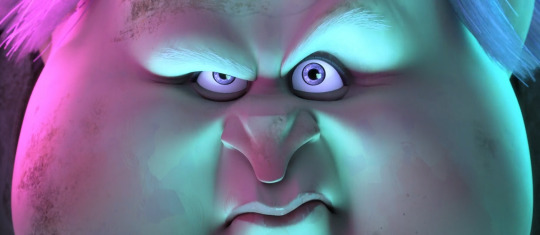
‘Big’ Jack Horner isn’t just an antagonist in The Last Wish - he’s a villain. a self-obsessed, exploitative, murderous, petty, cruel bastard of a man whose awful behaviour isn’t just motivated by personal slights or childhood trauma: he sincerely enjoys hurting other people. whether it’s cheating his goons (’The Serpent Sisters’) out of a fair payment for their services or being excited about shooting a puppy in the face, there’s no denying that Jack delights in causing others pain and suffering. but what does he have to do with Disney?
let’s answer that question with another question: do you think that Jack, when placed next to the other antagonists - Goldi, The Three Bears, even Death - sticks out like a sore, plum-coloured thumb?
of course he does! but why? well, let’s look at Jack on a surface level. Jack is a monolith of a human being. not only is he physically huge and intimidating, he is the inheritor of an enormous pastry fortune and operates in the manner of a mob boss, with countless resources and a whole variety of powerful magical items at his disposal. indeed, Jack employs a crack team of bakers/assassins called ‘The Baker’s Dozen’ to carry out many of his tasks. although Jack does harm others himself, it is because of these resources - including the people who work for him - that he is able to bypass many of the obstacles faced by our protagonists in an honest and character-developing way (e.g., the Pocket Full O’Posies in The Dark Forest). Jack doesn’t need to have a character arc the way the other characters do, because he is so wealthy and owns so much.
but Jack’s reason for owning so much and being obsessed with magic and magical items isn’t through intellectual curiosity, or a traumatic backstory where he needed to learn how to wield magic. do you know what Jack’s covert motivation for owning all of the magic in the world is?
it’s money.
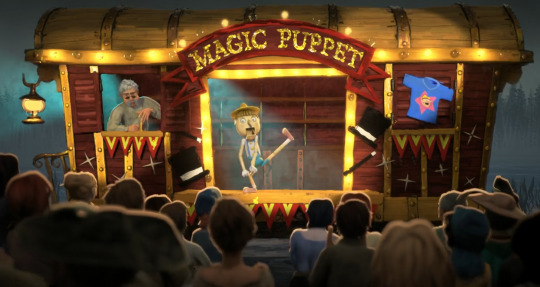
when we get the flashback of Jack’s childhood, dancing for the entertainment of an audience using his nursery rhyme, we see him becoming jealous of Pinocchio - and we see Gepetto in the back, absolutely raking in the cash. if we consider this flashback as that crucial moment within which Jack decided to become what he is today - and the presence of our off-brand Jiminy Cricket inclines us to think so - then we can understand that Jack decided that from that moment forward, he would own all of the magic.
let’s go back to The Baker’s Dozen for a moment. this team of highly-competent, multidisciplinary artisans do everything for Jack, whether it’s baking the pies which make him rich, or laying down their lives at his service. we aren’t given an in-universe reason for why they do this. yes, Jack is feared, but he is still the subject of mockery due to his humble beginnings as a nursery rhyme character. it certainly isn’t due to being treated or paid well. however, if we view the Baker’s Dozen as a metaphor for overworked, exploited artists whose views are routinely dismissed by the money-hungry, powerful corporation who owns their craft...things start to add up, don’t they? considering historic allegations of worker abuse at the hands of Disney, having Jack Horner literally step on their spines and encourage them to flex takes on a whole different meaning.
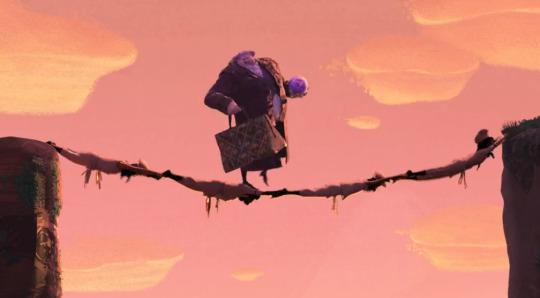
it doesn’t end there. do you recognise the items that Jack pulls out of his Mary Poppins bag when his Baker’s Dozen are being destroyed by the Pocket Full O’Posies - the items that he calls ‘the big guns’? it’s the broomstick from Fantasia, the spinning wheel from Sleeping Beauty, the size snacks from Alice in Wonderland, and a knock-off Jiminy Cricket from Pinocchio - all references to some of Disney’s earliest and most famous films.
still don’t believe me? well, let’s recap more of the items Jack has in his repertoire:
a hook-hand (referencing Captain Hook in Peter Pan)
a trident (referencing King Triton in The Little Mermaid)
poison apple bombs (referencing The Evil Queen in Snow White)
a glass slipper (again referencing Cinderella)
remember what happens when the knock-off Jiminy Cricket (interesting that there are so many Pinocchio references specifically, huh?) is horrified that Jack is losing so many men? Jack says he isn’t worried about losing the manpower, because he has a bottomless bag full of magical weapons. Jack literally gets his power off of the backs of his workers. sounds a lot like a big company justifying worker layoffs and exploitation because they have so many properties and are too big to fail, doesn’t it?
hell, Jack doesn’t even know what half of these items do! when he’s using the unicorn horns as ammo, he is surprised that they cause people to explode in a shower of confetti. viewing Jack through this lens, it’s difficult not to think about enormous corporations gobbling up properties and churning out content with little to no regard for their artists (looking back at The Baker’s Dozen - some of whom do perish in the fight with the unicorn horns) or what the properties are about. we haven’t even touched on Jack coveting the Wishing Star, a recurring motif in countless Disney movies as representing magic, dreams, and boundless creativity.
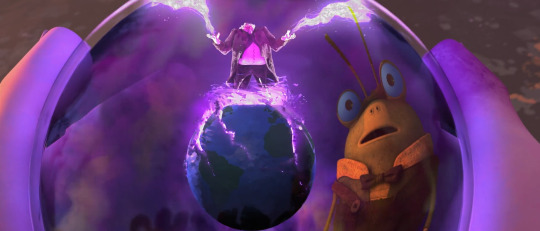
now, i hear you saying, ‘but Star! why would DreamWorks bother writing their bad guy as a metaphor for Disney?’ believe it or not, this isn’t the first time that DreamWorks have done this. in case you didn’t know, Lord Farquaad is a caricature of Michael Eisner, former chairman and CEO of The Walt Disney Company. the production of Shrek was actually quite troubled; animators who were perceived as having failed on other projects were ‘Shreked’, or sent to work on Shrek, instead of working on other (presumed to be more lucrative) films. of course, DreamWorks was co-founded by previous Disney CEO Jeffrey Katzenberg, hence the animosity towards Disney and its works evident in the Shrek franchise. this is what formed the story of Shrek: an ugly, crude outsider character taking on the clean-cut moralising of a dictator hell-bent on a so-called ‘perfect’ world, all created against the creative backdrop of a painful separation from Disney and a great deal of pent-up rage.

the irreverent, crass and sometimes adult humour of Shrek was a middle finger to Disney’s high-censorship control on animation. this is why Lord Farquaad (which you may have noticed sounds a bit like ‘Fuckwad’) is so obsessed with Duloc being ‘perfect’, and why he couldn’t stand the freedom of the fairy tale creatures who are the heroes of the first Shrek movie.
in fact, this kind of meta-commentary permeates the Shrek franchise:
The Fairy Godmother from Shrek 2, despite being a fairy tale creature herself, is highly prejudiced against characters who break out of their perceived social norms: i.e., Shrek marrying Princess Fiona and getting his Happily Ever After. she is an expansion of the control left over by Lord Farquaad, and rich because of her monopolisation of fairy tale creatures and their stories.
Prince Charming in Shrek the Third fails miserably to capitalise on these themes, but we’ll get back to him!
Rumpelstiltskin from Shrek Forever After tackles the gluttony of franchise reboots, and how soulless and rooted in corporate greed attempts to reboot often are. whilst not necessarily Disney-specific, Shrek Forever After follows the box office bomb that was Shrek the Third: a movie which noticeably fails to write a compelling narrative approaching any of the themes of the previous two films. the writers learned from their mistakes and wrote a movie which satirised their own selling-out of the franchise, becoming hollow and unnecessary and ‘perfect’ - the very thing they were making fun of in the earlier Shrek films.
there is one more area i’d like to touch on: Jack Horner’s source material. we know that Little Jack Horner is quite obscure: an 18th-century English nursery rhyme involving a boy who pulls a plum out of a pie with his thumb, and congratulates himself for his fortitude. but did you know that from its earliest conception, Little Jack Horner was associated with foolishness and dishonesty?

it’s true: the simple yet inexplicable nature of the poem was lambasted for being infantile, and quickly became the subject of revision, moralisation, and even political satire. it is no mistake that to ‘be under one’s thumb’ (as many of the characters in The Last Wish are to Jack, both literally and figuratively) means to be under one’s decisive control. the choice of Jack Horner for the villain of The Last Wish is a clever one, because we could easily have ended up with a sympathetic Jack, whose ostracisation as ‘not even a fairy tale’ may have led to a justifiable motive, even for his specific brand of cruelty. but instead, the writers of The Last Wish have gone one step further; they’ve transformed a source affiliated with idiocy and deception into a metaphor for a global multimedia conglomerate...all while portraying him as simultaneously terrifying, powerful, and ridiculous.
it has been over a decade since Shrek Forever After was released, and Disney has changed dramatically in that time. a global giant, Disney now owns more enormous money-making properties than ever thought possible, and consistently capitalises on nostalgia for its early properties to make more money and accumulate power. since breaking out of its exclusive licensing agreement with Disney in 2016, DreamWorks has had no official connection to Disney, making the ground for mockery and satirisation of the company which spawned the studio all the more fertile. ‘Big’ Jack Horner is not just a glamorous return to form for the dreadful, unapologetically evil villain which Disney has eschewed in modern times - he’s a hulking, egocentric monster whose avarice rivals that only of the corporation he’s inspired by.
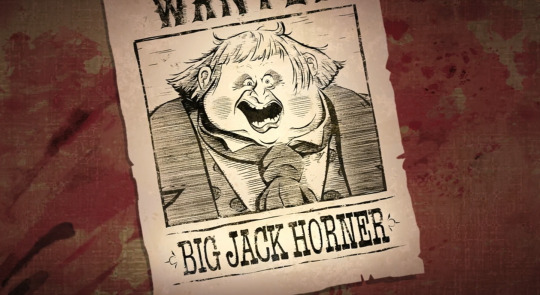
and those are my thoughts on ‘Big’ Jack Horner! of course this is by no means the definitive interpretation - we should all just have fun with the movie and come up with whatever theories we like 🥰💖 i’d love to hear your thoughts on him and The Last Wish in general - he’s definitely one of my favourite bad guys to be released in the past few years!
thanks so much for reading, and have yourselves a wonderful day 🥰
#big jack horner#jack horner#puss in boots: the last wish#puss in boots#shrek#disney#puss in boots: the last wish spoilers#starleskatalks
7K notes
·
View notes
Text
nerd shit that no one here cares about but I really hate how much I like the actual mechanical and character creation changes we know about in this 'one dnd' shit given how much I detest the announcement overall with its focus on moving towards digital (video game industry-ification of dnd ahoy with microtransactions and all) and the general resentment of all attempts to squeeze more money out of republishing core books etc
#I'm kinda fine with it because I know I'll pirate everything as usual and pick and choose what I like#in games I run myself#but I care what it does to the general community cause like. I also enjoy and miss being a player.#and if all the games I can find expect me to have some dndbeyond subscription shit or pay for a class/race I can just google#or even find in a book I literally already own#I am going to start screaming and bitterly retreat back into other less mainstream and harder to organise/find resources for ttrpgs#at least my opinion here is practically the same as every other one I've read elsewhere. for what it's worth.#(very little)#you can pass around a physical book. photocopy it. copy and share pdfs.#pretending this isn't how everyone has always done it and if you want to get into this you have to drop nearly a hundred quid is ridiculous#(the original game literally got popular off of photocopies)#but far easier with digital unlocks on their automated dndbeyond character sheets and their official vtt#if you can sweep all the free and customisable resources for exactly this that already exist (!!!) under the rug#ghost.post#anyway none of this is new it's just getting more and more imminent#and it sucks to worry about a hobby getting pulled out from under you just as you get into the swing of it
1 note
·
View note
Text
12H Hidden Enemies: 😈
The placements/house ruler in your 12H can show you who your karmic hidden enemies are. They may love you one minute & hate you the next! But they are more difficult to perceive than your 7H open enemies because their attacks are more at a subconscious level but they are still harmful to deal with nonetheless. But you can learn from them & can even protect yourself against further attacks by just knowing what to look out for.

12H Moon/Cancer: One of your hidden enemies could be your family, your mother, or a mother figure in your life. But these individuals will attract enemies with feminine energy and people who try to manipulate them at an emotional level and suppress them. They are very intuitive though so you can’t fool them whatsoever. They can feel energy so if you have any ill intent towards them they will feel it.
12H Sun/Leo: attracts enemies with masculine energy and people who try to come for their ego and confidence overall. They may also attract people who try to dim their light and one-up them in any way possible.
12H Mercury/Gemini/Virgo: attracts enemies who try to compete with their intelligence and charisma. They may attract people who try to diminish their character by influencing those around them to hate them. People will also go out of their way to misunderstand them and downplay their intelligence. These enemies give off supervillain vibes. They will spend too much time fixating on how much they hate you. But they exude two-faced envious energy essentially.
12H Mars/Aries/Scorpio: attracts enemies with masculine and aggressive energy. Your enemies will be competitive and out to destroy you! Their hatred for you won’t be contained whatsoever. You guys attract literal lunatics. I think this placement can perceive their enemies way faster for this very reason.
12H Saturn/Cap/Aquarius: attracts enemies that are selfish, opportunistic, & egotistical. They will try and destiny swap with you or try and hold back your success in anyway possible by making you feel inferior. This placement gets projected on a lot especially surrounding their career.
12H/Venus/Taurus/Libra: attracts enemies who come for their appearance and resources. They may have been bullied/envied for their looks and attract enemies who try to use them. Their enemies will do everything in their power to disrupt their peace as well.
12H Jupiter/Sag/Pisces: attracts enemies who try to control them and restrict their freedom. They will also try and attack the knowledge they possess and try to suppress their mental expansion in any way possible.
12H Neptune/Pisces: attracts deceptive enemies who try to confuse them and mess with their minds overall. They attract gaslighters essentially. Their enemies will victimize themselves and may even mirror their unhealed parts. I think this placement can learn a lot from their enemies if they are self-aware enough.
12H Pluto/Scorpio: your enemies are seriously terrifying! They may be obsessive, envious, manipulative, and cruel. Like Aries/Mars in the 12H your enemies are out to destroy you but more on an emotional level vs. physical.
12H Uranus/Aquarius: your enemies will attack your authenticity and try to restrict your freedom. Like Sun/Leo in the 12H, your enemies will also try to dim your light. They are passionate about misunderstanding you too.
#astrology#zodiac signs#astroblr#shadow work#astro placements#zodiac placements#zodiac#spirituality#astrology hidden enemies#12th house#12h placements#12h synastry#natal chart#birth chart
1K notes
·
View notes
Text
my favorite free tools for writers
hello, hello! hope you're doing well.
today i am bringing you another list with my top 3 favorite (free!) tools that I find helpful for each phase of writing a novel.
brainstorming phase
Fantasy Names Generator - not only for fantasy (you can also generate real names). this website is just... amazing! it helps you come up with names for characters, places and locations, descriptions, generate traits, outfits (yes, outfits!!), and probably something else you could ever think of.
The Story's Hack - this one is so cool! you can generate names for everything, create your own generator, and practice writing through writing exercises! plus, you can save your generated names to see later, and you earn coins for each idea generated (you can later buy themes - dark, snow, forest, etc)
RanGen - my last favorite generator on this list is RanGen! you can generate plots, appearances, archetypes, love interests, cities, worlds, items, and more.
developing the idea phase
Bryn Donovan - in this blog you can find master lists under the tag "master lists for writers". it is so helpful when you first start developing the characters and need to find the right words to describe them and to find some quirks and flaws!
Writers Write (350 character traits) - again, this is so helpful!
Story Planner - ah, the number of times I've talked about this website... please, PLEASE take a look at it, you won't regret it. this website has literally everything you need to fully develop your idea with outlines for you to fill in step by step.
writing phase
Colleen Houck (80+ barriers to love) - need more romace conflict? there you go!
Cheat Sheets for Writing Body Language - so, you know how your character's feeling, but don't know how he'd physically act? check out this list!
Describing Words - honestly, this is a lifesaver. don't you struggle to find the right word to describe something? well, with this website all you have to do is to type the object you're trying to describe and see which description fits better to you!
revising phase
Language Tool for Google Docs - i know we all have heard about google docs before, but the truth is, it's almost impossible to find free softwares to check grammar and spelling. so, google docs is useful, because it automatically revises it for us, and it's completely free. plus, you can add adds-on, such as "language tool".
Unfortunately, there's only one (free) tool that I actually enjoy for the revising phase. if you know some others, please let me know so that I can try them out and feature in this list.
exporting phase
Google Docs - i find google docs very easy to format and export to .epub, so i'd recommend using it as a free tool.
Reedsy - this is also a free tool available online. all you have to do is to write down each chapter (copy and paste) or import your word document. it will format the document to your liking and export it to pdf, epub and mobi.
that's everything for now! i hope this post was somehow helpful or inspiring!
if you want to see more master lists full of resources, check these:
WEBSITES FOR WRITERS {masterpost}
BEST accounts to follow as a writer
BEST SITES & SOFTWARES TO WRITE FICTION
DIALOGUE IDEAS TO GET RID OF THAT WRITING BLOCK (masterpost)
Useful Resources & Tips for Writers
also, if you are a notion lover just like me, check the free template I just released with everything you need to develop and write your novel!
thank you so much for reading! hope to see you around, and have a nice day <3
#writing resources#writing#writeblr#writer tips#writing advice#writing help#writing tips#poetsandwriters#resources#research#wattpad#nanowrimo#creative writing#writerscommunity#writers#writing inspiration#writing prompts#writing reference#writerslife#writersofinstagram#software#inspiration#writing inspo#for writing#for writers#for whoever needs it#writing research#researching#we love an useful post#useful
6K notes
·
View notes
Text
Eight Strategies for Improving Dialogue in Your Writing
Well, hi! Oh my… wow! It’s been a long time since I’ve posted! I’ve been very busy and I am genuinely sorry to all my followers, but that doesn’t mean I’ve forgotten about this account, but here is one final post for the year!
Hopefully next year I become consistent with it again!
Let’s begin!
One of the best ways to help a reader connect with your writing is by crafting excellent dialogue. Use these tips to learn how to write dialogue that showcases character development, defines your characters’ voices, and hooks readers.
Why Use Dialogue?
Good dialogue performs all sorts of functions in fiction writing. It defines your characters’ voices, establishes their speech patterns, exposes the inner emotions, and showcases their character development. Beyond mere characterization, effective dialogue can also establish the setting and time period of your story and reveal information in a way that doesn’t feel overly expository.
Authors use lines of dialogue to reveal a character’s personality and express their point of view. For instance, an archetypal football coach might speak in short, terse sentences peppered with exclamation points and quotations from famous war generals. By contrast, a nebbish lover with a broken heart might drone on endlessly to his therapist or best friend, speaking in run-on sentences that circle around his true motivations. When an author can reveal character traits through dialogue, it cuts down on exposition and makes a story flow briskly.
Eight Writing Tips for Improving Dialogue
The first time you write dialogue, you may find it quite difficult to replicate the patterns of normal speech. This can be compounded by the concurrent challenges of finding your own voice and telling a great story overall. Even bestselling authors can get stuck on how a particular character says a particular line of dialogue. With practice and hard work, however, lackluster dialogue can be elevated to great dialogue.
Here are some strategies for improving the dialogue in your own work:
Mimic the voices of people in your own life. Perhaps you’ve created a physician character with the same vocal inflections as your mother. Perhaps your hero soldier talks just like your old volleyball coach. If you want to ensure that your dialogue sounds the way real people speak, there’s no better resource than the real life people in your everyday world.
Mix dialogue with narration. Long runs of dialogue can dislodge a reader from the action of a scene. As your characters talk, interpolate some descriptions of their physical postures or other activity taking place in the room. This mimics the real-world experience of listening to someone speaking while simultaneously taking in visual and olfactory stimuli.
Give your main character a secret. Sometimes a line of dialogue is most notable for what it withholds. Even if your audience doesn’t realize it, you can build dynamic three-dimensionality by having your character withhold a key bit of information from their speech. For instance, you may draft a scene in which a museum curator speaks to an artist about how she wants her work displayed—but what the curator isn’t saying out loud is that she’s in love with the artist. You can use that secret to embed layers of tension into the character’s spoken phrases.
Use a layperson character to clarify technical language. When you need dialogue to convey technical information in approachable terms, split the conversation between two people. Have one character be an expert and one character be uninformed. The expert character can speak at a technical level, and the uninformed one can stop them, asking questions for clarification. Your readers will appreciate it.
Use authentic shorthand. Does your character call a gun a “piece” or a “Glock”? Whatever it is, be authentic and consistent in how your characters speak. If they all sound the same, your dialogue needs another pass.
Look to great examples of dialogue for inspiration. If you're looking for a dialogue example in the realm of novels or short stories, consider reading the great books written by Mark Twain, Judy Blume, or Toni Morrison. Within the world of screenwriting, Aaron Sorkin is renowned for his use of dialogue.
Ensure that you’re punctuating your dialogue properly. Remember that question marks and exclamation points go inside quotation marks. Enclose dialogue in double quotation marks and use single quotation marks when a character quotes another character within their dialogue. Knowing how to punctuate dialogue properly can ensure that your reader stays immersed in the story.
Use dialogue tags that are evocative. Repeating the word “said” over and over can make for dull writing and miss out on opportunities for added expressiveness. Consider replacing the word “said” with a more descriptive verb.
897 notes
·
View notes
Text
dear diary⋆.ೃ࿔*:・✨

keeping a diary is so much FUN and helpful not only for my mental health but for overall GIRLINESS. as someone who's been keeping a diary consistently for two years now, i'll be giving some diary resources and tips on how to get started and maintain a diary.
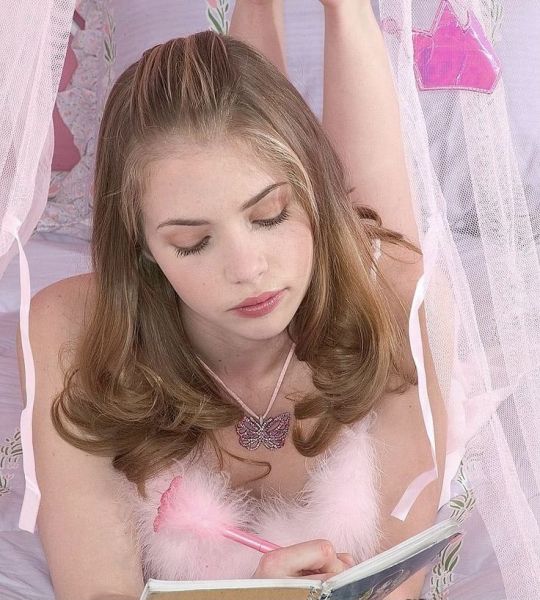
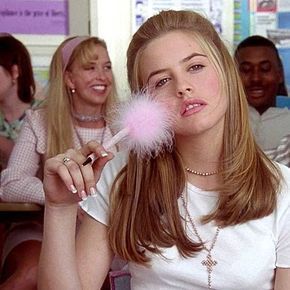
WHY ITS FUN TO HAVE A DIARY ;
i love to read past entries bcuz first, im rly rly funny and its fun to go back and read what i was writing about at that time and just reminisce on points in my life. it makes for great entertainment and it showcases growth that i've made and the way that my character changed or grew.
its been a game-changer for my mental health bcuz i have a little outlet where i can be completely transparent and just yap endlessly with no one to stop me or invade on my privacy.
TOOLS FOR A PHYSICAL DIARY ;
fluffy pink and purple pens
yummy scented glitter pens
past-able things (examples include ; cut outs from magazines, photos that you've taken and printed, stickers, memo sheets)
some print able and past able resources ;

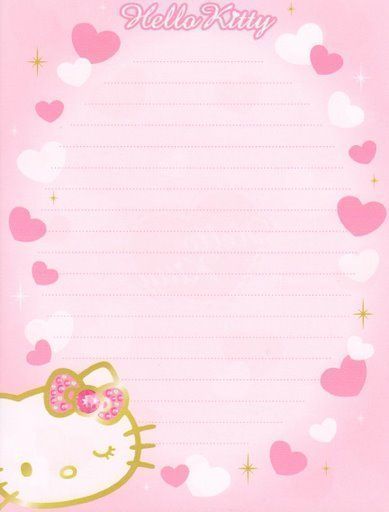
decoration for the actual diary like glitter, stickers, ribbons, and frills.
for the actual diary , look for diaries that are pretty (for example, fluffy diaries)
more examples ;

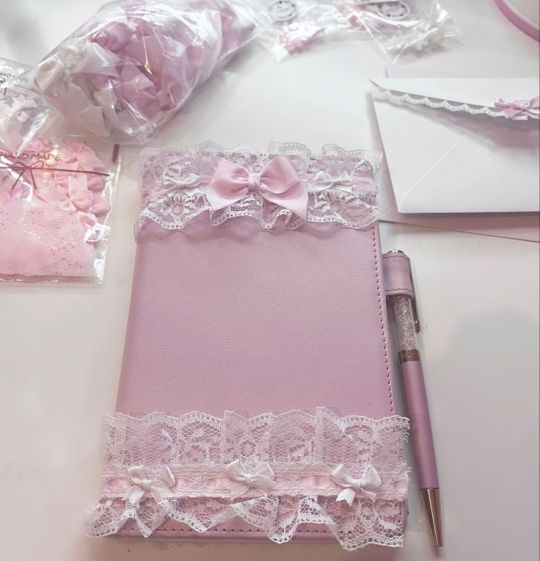
TOOLS FOR A DIGITAL DIARY ;
a good writing tool (FOR MY DIARY, I USE NOTION)
cute headers + photos to insert into my diary, i find all of my photos on pinterest.
digital diaries are easily a lot less work then physical diaries which is why i keep a digital diary but keeping a physical diary is SO much fun too.
THE ACTUAL WRITING PART ;
everyone will write in their diaries in a different way based on whatever feels the most natural, but for me i start off my entries with "dear diary" and then write in the journal as though i was writing to a friend so its super comfy and relaxed.
i actually have a couple of writing outlets, so i have a journal and i have a diary. my diary is mostly for my day-to-day life. its updated 2x a week (tuesdays and thursdays) in my journal, thats less about my day to day and just random things i wanna write about.
STUFF THAT I HAVE IN MY JOURNAL ;
all about me
girlhood and the little joys of life
why im the most beautiful girl (with proof)
stuff i like
vaunting about myself
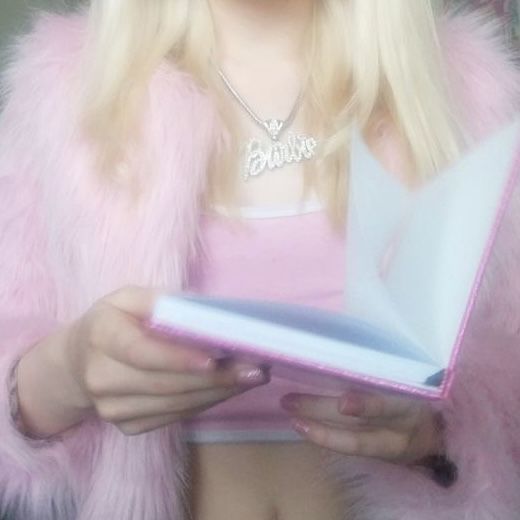
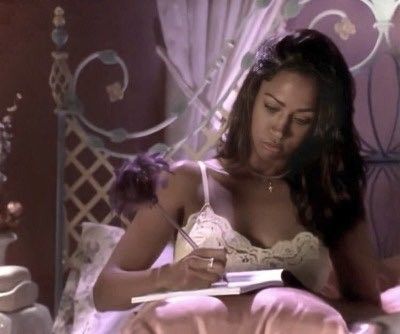
sweetest inbox letters (cuz ur all so sweet)
list of things i've consciously manifested so far this year
my car collection
tattoos i wanna get and why
my unholier thoughts
PROMPTS AND IDEAS ;
angel numbers
favorite song lyrics
list of things to manifest
a love letter (to yourself, crush, etc)
letter to your future/past self
lipstick stain log
current obsessions
pressed flowers
favorite sweet treats (ranked)
list ur crushes and celebrity crushes
favorite quotes in general
ppl that u look up to
doodles
all in all i think that journalling is such a fun and beneficial hobby and hopefully this post can help u to start something that u might rly love. ✨
#self concept#it girl#becoming that girl#self care#self love#that girl#it girl energy#honeytonedhottie⭐️#resources💬🎀#diary#dear diary#diary entry#journalling#journal prompts#journal ideas#ideas🌸#girl blogging#girly#dream girl#dream girl tips#girl blogger#girlhood#hyper feminine#princess#dolly
607 notes
·
View notes
Text
Writing Help

General Tips
The purpose of writing
Important: only you can tell your stories
Every fanfiction genre has value
HOW TO STAY MOTIVATED!
Maintaining Motivation
Reasons to Keep Writing
Stretch your hands and fingers
Analyze the stories that you like
Title creation
How to comment on your favorite fics
Moodboard sources
PIRATED FAN FICS!!!
Fanfiction is legitimate (featuring Neil Gaiman)
Angst and Horror: if you can't handle it
Publishing
Writing Smut: overcoming shame
Don't toss your work
Dialogue / Writing rules
Prologue
Paragraph breaks
Sentence length matters!
Dialogue punctuation
Scene Checklist
Body Language
Descriptions between dialogue
3 dots in a sentence (Ellipsis)
Using adverbs
Using adjectives
Coming Outs
Commonly misused words & phrases
Words to Avoid
Flirting!
World Building
World building through plot holes
Using context clues
Creating land
Government
Matriarchal society
Dystopia
Descriptions
Resources for Describing Physical things
Alcoholic drinks & cocktails
KISS SCENES
Clothing references
Sewing sources (includes history of fashion)
Hair texture
Skin color/tone
Sword / Martial arts inspo
Character Development
Character sheet
Character sheets
Character development, agency, plot
Esk*mo is a slur
Naming characters
Naming characters in other cultures
Emotional intelligence
Human body limits
Making threats and the third option
Bartenders
Children
Kids
Asian characters
Muslim characters
Slavic characters
Russian names
Mixed characters
Bilingual characters
Blind or Visually Impaired
Morally grey
Dangerous female characters
Liars
Romance development
Healthy Relationship
Sacrifices
Redemption arc vs forgiveness
Redemption arc trope
Regret / Remorse
Prompts/one-liners
Prompt masterlist
Another prompt masterlist
A third prompt masterlist
Best friends to lovers
Mob Boss
Prophecy of lost child
Super power of truth
Enemies to lovers
Enemies to lovers: Reasons to hate
Enemies to lovers: Getting together
Enemies to lovers Prompts!
Enemies to lovers: Fake dating
Past-life Enemies to lovers
Late-night wandering
Compliments
Touch-starved
Romance/physical intimacy prompts
Romance: little acts of love
Smut
Reputation
Break-ups
More sources
Masterlist: body language, words, translator
Masterlist: prompts, LGBTQ+, NSFW Advice
Meme: fanfiction problems
Mr. Darcy (Pride and Prejudice)
Bechdel Test
Part 2 ->
#writing#writing help#writing tips#writing inspo#writers of tumblr#writers of ao3#writer#writeblr#fanfiction writer#fan fiction#writers block#writers#writer things
5K notes
·
View notes
Text
The Darkest Hour for your Protagonist
Also known as the “crisis” or the moment when all hope is lost for your protagonist. The Darkest Hour is when your character hits rock bottom and that “happy ending” just seems unreachable. In this scene, success for your protagonist appears impossible.
What could be a Darkest Hour?
In my opinion, you want your darkest hour to be as dark as possible. Push things to the extreme, create stakes, and hurt your protagonist.
• Not just any death, but the death of someone your protagonist loves (did your protagonist fail to save them? They now blame themselves.)
• Not just a mild injury, but a serious and life-threatening one (does this injury follow your protagonist into the end of the story? Permanently?)
• Use their fears against them (if they’re afraid of snakes, don’t just have one appear... have them fall into a pit of them.)
• Make your protagonist lose all hope and put their insecurities on full display (they’re embarrassed and ashamed in front of everyone.)
• Attack their mentality just as much as their physicality. (Betrayals, lies, deceptions, self-doubts.)
When does it happen?
Typically, the Darkest Hour occurs right before the climax. Your protagonist is at their all-time low until they have an “a-ha!” moment and gain the hope, strength, or resources to overcome their conundrum and push into the climax of the story.
How does my Protagonist overcome their crisis?
There are numerous ways that your protagonist can trudge out of the mud and gain the strength to continue fighting. They could do it independently and prove themselves a true hero, pull hope from memories and past encounters, receive aid from allies, divine intervention, etc.
Why is the Darkest Hour Important?
The Darkest Hour is vital to a character’s arc and story because, during their all-time low, their true nature is revealed. Their insecurities, flaws, and fears are all out on the table and the readers get to see them at their most vulnerable. Watching them overcome the crisis shows the reader their growth as a character.
⭐ Show the readers how much your protagonist has grown. If this crisis happened at the beginning of your story, your protagonist would NOT have been able to overcome it. Only through their growth, learning, and plot experiences... are they able to overcome it now.
⭐THIS IS WHERE YOUR PROTAGONIST CAN FINALLY SEE THEIR MISBELIEF/FLAW.
During or after your protagonist’s Darkest Hour is an amazing place for your protagonist to realize the flaw in their thinking (their misbelief).
Referring back to older posts, your protagonist needs to have a “flaw” or “misbelief”. A false way of thinking that eventually, they will realize is wrong.
• “I’ll never be good enough.”
• “Magic is wrong and I will never use it.”
• “All aliens are evil and need to be eliminated.”
This misbelief should have been impeding on your character through the entire plot, causing them conflict and turmoil. After fighting for survival in their darkest moment, they realize they were thinking wrong all along.
• A character reminds your protagonist that they are good enough.
• Your protagonist sees magic being used to heal their allies and realizes finally that it can be used for good.
• An alien saves your protagonist from a bullet and suddenly your character sees that not all aliens are bad.
Instagram: coffeebeanwriting
#writing tips and tricks#writing tips#writing advice#creative writing#writeblr#writing blog#how to write#writing help#writing fiction#writing prompts#fantasy writing#authortips#authoradvice#writingtips#writingmemes#writers blog#writingblog#authorsblog#howtowrite#writingtipsandtricks#writerscommunity#writers community#writinghelp#writingprompts#writertips#howtowriteascene#writingfiction#fictionwriting#fantasywriting#writing memes
6K notes
·
View notes
Text
One Bed |Naruto Men X Reader| HC

Characters: Sasuke Uchiha, Kakashi Hatake, and Shikamaru Nara.
Summary: Classic one bed trope.
Warnings: Kissing. Bed sharing. Lead up to smut but no smut.
- - - - -
Sasuke Uchiha
It was shortly after the war.
The village was still recuperating from the loss, as was every other village, but there were still missions that needed to be fulfilled.
You were off to do some security work for the Daimyo, who had specifically requested the two of you to watch over his land while they rebuilt.
The only issue was that upon arrival, it wss revealed you'd be sharing a single room.
"You aren't the only ones to have suffered during the battle. Half of my property was destroyed!"
There wasn't much you could do, so you bit the bullet and followed one of the Ladies in Waiting to where you'll be staying.
One room? Whatever. One bed? Absolutely not.
You protested. It was inappropriate, even if you had known Sasuke for well over a decade at this point.
"We are low on resources at the moment, Y/L/N-san, Uchiha-san. It's why we have asked for your assistance in the first place."
You looked at Sasuke, who just gave you the same bored expression he always has.
You thanked the woman and began getting settled in your room. Sasuke offered to sleep on the floor, which you told him not to bother with.
You'd likely be here a few weeks, so it'd be best if you were both comfortable.
Sasuke was nice enough to let you shower first, which you'd gladly taken after two days' worth of travel.
He waited patiently for you to finish so he could prepare for bed as well. It was late, almost midnight, and he was tired.
It was awkward the first night. You'd slept uncomfortably back to back with this weird air around you.
You'd put on your most conservative pair of pajamas despite how warm the room was, and that only made things worse.
The second night wasn't much better.
But by the third night, you both grew tired of the tension. It was difficult to be fully rested when you'd slept terribly, so you formed some kind of unspoken, mutual respect for now.
You'd opted for your normal nighttime attire - a pair of shorts and thin t-shirt. You already felt better.
Sasuke, on the other hand, had been grateful for your prudish clothing. He had never said anything before, not that he had the time to, but he'd always been attracted to you.
Your revealing pajamas were not helping his comfort, so while you slept better that night, he did not.
Nor the next night.
Or the night after that.
By then, you'd become very aware of his antics. On top of being physically aware that he wasn't sleeping, you'd also become annoyed by his poor attitude.
He was already an ass as is, you really didn't need him sleep deprived on top of it.
So that night, as you lay in bed next to him, you roll onto your stomach and prop yourself up on your elbows to look at him.
"What's your problem?"
"I don't have a problem."
"Really? Could've fooled me."
He tsked at you. Why'd you have to be so annoying?
You pushed yourself up so you'd be sitting on your knees, your hands flat on the bed so you could still lean forward to talk to him.
His eyes darted down to your chest before looking away entirely.
No way. There was absolutely no way.
"Are you... bothered by my clothes?"
"Don't be stupid." He snapped.
You tried to suppress a knowing smirk but failed.
So you leaned forward and kissed him.
Despite his surprise, he immediately responded to your kiss, going so far as to roll you over onto your back so he'd be on top of you.
"Maybe I am a bit bothered."
Kakashi Hatake
This is Kakashi’s first Kage Summit, and he asked you to be his plus one.
You accepted with no hesitation. You were anxious to get out of the village since the war ended and going out with Kakashi was sure to make it all the more interesting.
The summit was boring. That's a good thing compared to the last summit, but it still made you want to gouge your eyes out. They discussed the status of their villages and what sort of issues they'd been running into, blah blah blah.
When it was nearing midnight and everyone was growing tired, they agreed to call it a night and resume in the morning.
Everyone went to their respective quarters, but when you got to the Leaf Village's wing, there was only a single room with a bed.
Apparently, during the rebuild, they'd slipped up and only added a single room instead of the usual two, and no one had noticed (Thanks Sasuke).
It wasn't too big of a deal. You'd known Kakashi since your Genin days and slept in the same room plenty of times.
You were a bit surprised when he actually got into bed with you though.
Despite all those sleepovers, this was the first time you'd actually slept so close together.
You stared at him. Not on purpose, just happened to be doing so while your mind was racing.
"Is this an issue? I can sleep on the floor."
You shook your head.
"You sure? You were giving me quite the look."
"I was just... wondering what you'd look like under the mask."
You lied. You couldn't tell him how you were thinking about sleeping in bed with him and it's implications.
He snorted and did something that completely caught you off guard.
He pulled down his mask.
You blushed. How could you not? All these years, and he chooses now, the most random moment, to finally reveal such a wel kept secret.
And then he does something else that yo weren't expecting.
He leans forward and kisses you. You kiss back. He pulls away after a minute.
"I've been waiting to do that since we were teenagers."
You laugh at him, then pull him in for another kiss.
Shikamaru Nara
Shikamaru, being the lazy man he is, put off booking a room to stay in for so long that there was only a single room left st the inn.
You'd scolded him, and he took it, knowing he should've done it when he'd gotten the mission report.
The room was on the smaller side and contained only a single bed and dresser.
Neither of you were interested in sleeping on the floor for the next week, so you agreed to share the bed.
Something you wouldn't have done if you'd known Shikamaru was such a... uncharacteristically chaotic sleeper.
Seriously, he moved around more at night than he did during the entire day. Maybe it's all the pent up energy.
Within an hour of him knocking out, he was already sprawled out across most of the bed, leaving you two options: sleep on the edge or lay on him.
You tried to sleep in the bit of space he hadn't taken, really, but it seemed he was basically drawn to you.
You caved, allowing whatever was going to happen to happen, too tired to fight it any longer.
When Shikamaru eventually woke up, you were on his chest, one arm thrown over him and peacefully sleeping.
He got flustered and quickly tried to get out from under you, waking you in the process.
He was able to dart away without much suspension. Or at least he thought.
The next night was the same, minus the internal battle you'd had prior.
When Shikamaru woke up to the same dilemma, he decided it was best to fall asleep after you.
That night, he'd stayed awake under the guise of a mission report update for the Hokage.
You'd simply shrugged and gone to bed.
He followed when he was sure you were asleep, making sure each of you were on your respective sides of the bed.
He was surprised when he woke up with him on top you, head on your chest as if it was the most casual thing to happen.
He'd begin to stammer about, but stopped when you'd groaned.
"Settle down, would you?"
"I was just-"
"It's not that big of a deal, Shika, just go to sleep."
He listened to you, despite not understanding what was actually going on.
In the morning, he attempted to talk to you about it, but the conversation didn't quite go as planned.
"Yeah, you're a cuddler. Not much I can do about it, so it's whatever."
From then on, it slowly became more natural for your nights to get more personal, even once you'd gotten home.
#sasuke uchiha x you#sasuke uchiha x reader#sasuke uchiha fluff#sasuke x reader#sasuke uchiha#kakashi hatake x reader#kakashi x reader#kakashi hatake x you#hatake kakashi#kakashi fluff#kakashi hatake#shikamaru x reader#shikamaru nara x reader#shikamaru x you#shikamaru nara#shikamaru#naruto x reader#naruto#naruto shippuden
346 notes
·
View notes
Text
Random writing tips that work strangely well #3
This was an accident.
But in my attempt to create a character that overthinks so much that reality happens in the background/through a very heavy lens....
I ended up following a lot of writing advice, it improved my writing, and I have an overthinking character! (Although this works for pretty much every type of character, just edit the writing style to your needs.)
In essence:
Give your character a lens with which they view the world. For my character, they are a storyteller and will make a story about the clouds and the wind. For a character that has a deep knowledge about... physics and statistics for example, might make metaphors to that and notice such things more often

But don't stop it at just interests! If you can combine the lens with the internal conflict (desires, fears, current perception of the world) It has a whole layer of depth.
~What does this new information mean to the character? ~
For example, you can have the musician character notice the sounds of everyone's voices, and that will reveal what the musician character thinks of others.
You can have a character that's analytic try to decode their sensory perceptions and try to figure out what they are feelings and why. They may spend a lot of time trying to figure out their past and what specific moments made them the way they are, and they might do the same for others. This will reveal that the analytic character cares a lot about knowing everything and they might be scared to leave things up to chance/unexplained.
Jealous characters will see other people's achievements and either downplay those achievements or try to imagine themselves surpassing them. (The 'smart child' that's slowly falling behind anyone?)
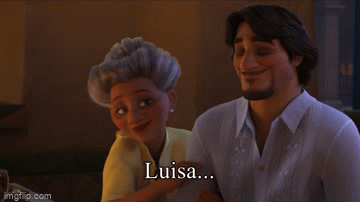
AND MY BEST ADVICE IS TO PRACTICE WRITING THIS BEFORE YOU START INCORPERATING IT INTO YOUR WIP! For me, I would plot like crazy then... kind of go off the rails in my actual writing. Then I'd get upset that my writing didn't match my ideas.
And it's okay! Getting to know your character takes time.
What works for me is to write some loose notes down, then I'll do some practice snippets. Random ideas with no coherent structure or events... it's just practice for the character.
Backstory also helps! (and it doesn't necessarily have to be tragic... just informative to the character on how they should navigate the world)
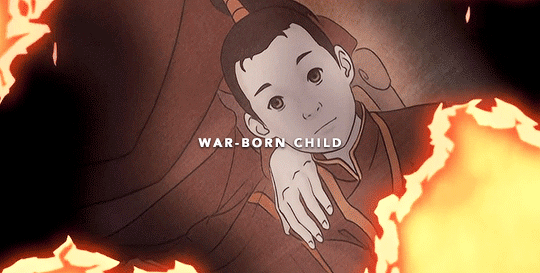
If you have your character reacting and analyzing what is happening to them and what they are going to do about it, then pretty much every type of paragraph (scene description, describing another character, actions etc.) are going to be a lot more fun to read and write!
And as always - the best writing methods are the ones that work for you, take what you need, modify it for your wip, or make something up on your own. There's no need to take advice as the end all be all!
Additional resources under cut
youtube
#writeblr#writing community#writing tips#writerscommunity#writing advice#writing resources#writing help#how to write#writing tips and tricks#writers and poets#books & libraries#writing#writers on tumblr#writers of tumblr#the writeblr library#creative writing#writing tools#RWTTWSW#RWTTWSW 3#random writing tips that work strangely well#Youtube
491 notes
·
View notes
Text
Intimidation Ranking / Yan Sumeru Boys.

Kaveh — 2/10
Like... he's writing your names next to one another in his notebook and drawing a heart around it. Kaveh isn't inspiring much fear in the traditional sense. You find him endearing more than anything. He visibly brightens up when you're around, stares off into the horizon and sighs when you're not. His more socially unacceptable tendencies are kept under lock and key (such as his innumerable blueprints for how he'll build your house when you get married, despite how you're both only friends). His romantic rivals don't have to fear for their lives as much as they would if put up against the others on this list. That being said, he still has his methods for dealing with them. It's more psychological in nature. Once he's cemented himself as an important figure in your life, he'll 'exaggerate the truth' (he thinks the word lying has a negative connotation), about any rivals' negative traits. He does this covertly over increments of time so as not to arouse any suspicion. You couldn't possibly look at Kaveh and suspect any wrongdoing on his part.
Alhaitham — 5/10
Alhaitham is weird because he has the potential to rank high, but he'd rather not go that route if it isn't necessary. Outsourcing to criminals would require extra work. He'd prefer to stay in the realm of legality for convenience's sake, perhaps pushing gray areas, but nothing that'll require a major coverup. Just a little good old-fashioned coercion if you're being stubborn about returning his affections. He's crafty, he needn't get his hands dirty to obtain the outcome he desires. Should you be of an academic inclination, he'll utilize his influence in those spheres to impede your progress. There's no physical evidence so you have no means of retaliation. Given his dispassionate demeanor, people will have a hard time believing you should you tell them about this. Alhaitham himself will utilize a similar tactic should you ever confront him. His sound logic and steady voice make you wonder if you really are imagining everything. It's maddening.
Cyno — 7.5/10
Cyno is a force of nature. Once he's set his sights on you, that's it. While it isn't you who needs to be frightened per se, the same cannot be said for those he deems as questionable influences in your life (basically anyone who isn't him that receives your attention). He has the authority and resources to comb through their entire bloodline for any potential wrongdoings. No one's lived a perfect life, he's bound to find something, even if it just ends with them having to pay a fine. Still, in a highly competitive area like Sumeru, having anything on their record is a death sentence. Rumors start circulating that anyone who hangs out around you is subject to meticulous background checks. No one knows why, but that doesn't matter, the risk alone serves as a sufficient deterrent. If they cheated on a test when they were ten, Cyno is going to find out. The man's nothing if not determined. Cyno genuinely thinks he's doing this in your best interest — his conscience is crystal clear. This adds another layer of formidability because there will be no convincing him to stop.
Wanderer — 9/10
As Scaramouche, it would've been a 10/10, but he's had some character development. Emphasis on the word some. Nahida considers his budding attachment to you a healthy development, especially since you're the first person he's taken an active interest in without her involvement. He's keen on maintaining this innocent, well-meaning façade since he's still under surveillance for his previous crimes. This unintentionally works wonders for him. While he still has a sharp tongue, the fact he actively chooses to be in your general vicinity proves you're special to him. You think he's harmless, if not a touch blunt. He's perpetually hanging around and offering to help with whatever you're up to. You're happy, Nahida's happy, and surprisingly enough, he's happy. This cannot be said for anyone else in your friend group. He increases his unpleasantness when around them, never to an incriminating degree, but just enough to give them pause. They'd rather not deal with him and he's always around you, like a miserable little forcefield that repels any outside force. Wanderer may not be free to wreak havoc anymore, but all that means is that he has to get creative about it. Nahida's lack of omnipotence gives him enough room to slink around. Where there's a will, there's a way.
#yandere kaveh x reader#yandere alhaitham x reader#yandere cyno x reader#yandere wanderer x reader#kaveh x reader#alhaitham x reader#cyno x reader#wanderer x reader#scaramouche x reader#yandere#yandere x reader#yandere genshin impact x reader#genshin impact x reader#my stuff
2K notes
·
View notes
Text
[gripping you so tightly and looking you in the eyes] listen to me. disability is the central theme of the owl house.
luz hardly fits in on earth because she's the "weird girl" (read: neurodivergent) and when she finally finds a world that's just as "weird" as her she now must "fit in" in an entirely different way because now she PHYSICALLY differs from the residents of the boiling isles. she PHYSICALLY lacks the organ used to perform magic and must use aids to make up for it.
willow is placed into a school course she cannot complete physically and struggles greatly for it to the point where it ruins her mental health, and thrives once she's placed in a class that actually physically accommodates her and the magic she uses.
Gus struggles with his emotions to the point where he has meltdowns where magic goes completely out of control and needs to learn how to trust himself and his body to manage it.
Eda's life was ruined because of a curse that is an incredibly obvious metaphor for chronic illness, and she loses everything because she has no clue how to manage it because she has no resources. When she learns how to manage her chronic illness, she thrives again.
Her mother is hell-bent on finding her a "proper cure" to "fix" her daughter because she can't accept the fact that her daughter is disabled, leading her to invest in huge health scams. Eda feels extreme guilt for crippling her father and ruining his career via her own curse, and reconciles with him in a scene where she accepts both his disability and her own.
Hunter spends his whole life trying to be "useful", desperately trying to prove he's worth something despite the fact that he PHYSICALLY can't perform magic. Characters with traditionally """ugly""" features such as scars and acne are treated entirely normally, to the point where it's just casually accepted. Disability is the whole entire point of it all.
6K notes
·
View notes
Text
A Comprehensive Guide for Writing Advice
Sometimes, despite enjoying writing so much, something is not working for you. Maybe your well of ideas has run dry. Or your WIP has hit a corner and you can't find your way out to the end of the story. Or you need to go back to your finished draft and see if there are any kinks to clear up.
Fortunately, everyone at Writeblrcafé has experienced such, and to help you out, we have a bunch of links to helpful posts by fellow writers to help you along on your writing journey as well as some helpful links to other websites, resources and software.
General:
WHY IS WRITING IS SO FUCKING HARD? (@writers-hq)
Writer Block First Aid Kit (@isabellestone)
Websites for writers (masterpost @2soulscollide)
Writing advice (masterpost @theliteraryarchitect)
Writing resources (masterpost @stinastar)
One look thesaurus (a reverse dictionary where you can enter words or concepts)
Coming Up with Ideas:
97 Character Motivations (@theplottery)
Character Flaws (@fantasyfillsmysoul)
Character Profile (@mistblossomdesigns)
Characters Unflawed (@emptymanuscript)
Why Theme is More Important than Plot (@theplottery)
Weekly writing prompts on Reedsy
Drafting:
3 of the worst story beginnings (and how to fix them) (@theplottery)
Cheat Sheet for Writing Emotion (@myhoniahaka)
Creative Writing for Writers (@writerscreed)
Describing Physical Things (@wordsnstuff)
How to Craft a Natural Plot (@theplottery)
How to Write a Story? (masterpost @creativepromptsforwriting)
How to write: ethnicity & skin colour (@youneedsomeprompts)
What the F is Show Not Tell (@theplottery)
Writing advice from my uni teachers (@thewritingumbrellas)
First Draft: story outlining template meant to help with planning your next big writing project (@fauxriot)
The wonder/ discovery arc (@evelynmlewis)
How to structure a chapter (@theplottery)
How to pace your storytelling (@charlesoberonn)
How to write and research mental illness (@hayatheauthor)
Seven Blogs You Need To Read As An Author (@hayatheauthor)
Editing/Revising:
Eight steps in making the editing process of your book easier (@joaneunknown)
Kill Your Darlings (@tibodine)
Self editing tips (first pass) (@projecttreehouse)
Publishing:
Chill Subs: biggest database for literary magazines and small presses; track your submissions and get your writing published!
5 steps to get your novel ready to self-publish (by @nanowrimo)
Resources for finishing and publishing your novel (masterpost by @nanowrimo)
For self-publishing: this page gives you the exact pixel count of a book spine based on its page count, and/or a template you can use for the correct width/height ratio.
Software:
Scrivener: one time payment of $60 or 70€ (macOS/windows), $24 (iOS; no Euro listed for iOS); used by professionals, many tools to write and organize your novel
Bibisco: free and "pay what you want" version; multilingual, world building, character profiles, writing goals, story timeline, mind maps, notes and more templates to write a novel.
Manuskript: free open source-tool; outliner, novel assistant, distraction-free mode
Ghostwriter: a free and open alternative which has a decent interface with some interesting features, like Hemingway Mode, which disables one's backspace and delete keys, emulating a typewriter.
NaNoWriMo: an international contest to encourage writers to finish writing their novel with many events, groups for exchange with fellow writers, helpful writing advice and help for self-publishing and publishing traditionally.
Campfire Writing: website, desktop app, and mobile app, with tools built in to help manage characters, magic systems, research, etc. It has a great free option, plus monthly, annual, and lifetime purchase options. It also has built-in NaNoWriMo compatibility and a catalogue of tutorials and writing advice videos (suggestion by @harfblarf)
Websites And Writing Apps Every Author Needs In 2023 (@hayatheauthor)
Let us know in the comments if there are any links we could add to it! Reblog this post to help a fellow writer.
Support our work by buying a cup of coffee on KoFi.
#wc.admin#writing community#writing advice#writing tips#writers on tumblr#creative writing#writing resources#writing software
2K notes
·
View notes